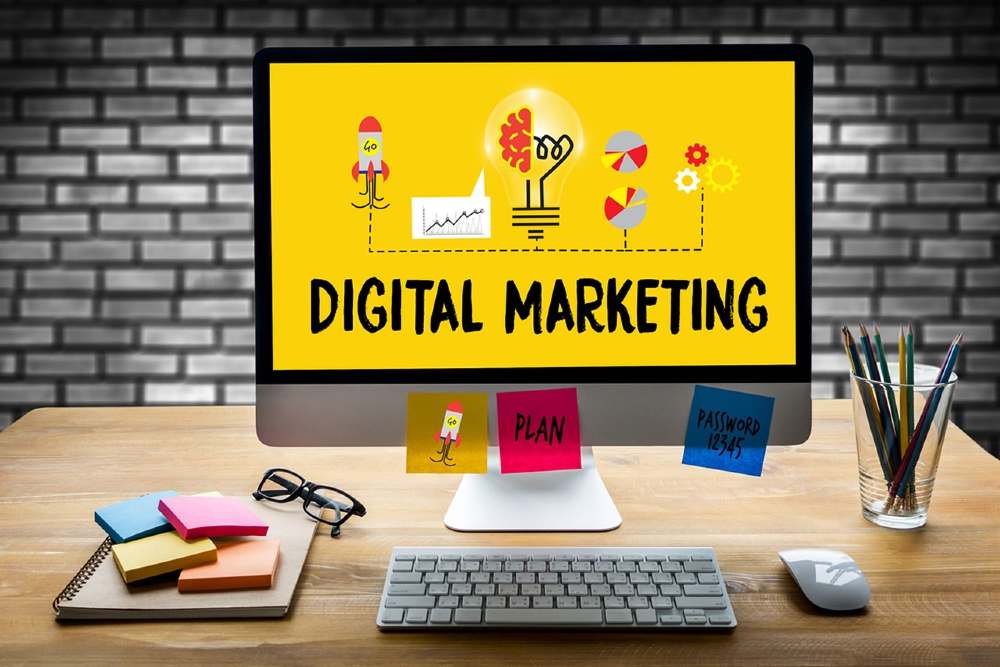In today’s fast-paced digital world, a well-crafted digital marketing strategy is essential for businesses of all sizes. Whether you’re a startup or an established enterprise, knowing how to efficiently reach and engage your target audience online can set you apart from the competition.
In this blog post, we’ll explore practical tips and insights on creating an effective digital marketing strategy, so you can drive growth and achieve your business goals.
Why Digital Marketing Matters
Digital marketing is no longer optional—it’s a necessity. With billions of people using the internet daily, there’s immense potential to connect with customers at every stage of their buying journey. A robust digital marketing strategy allows you to:
- Reach a global audience at a fraction of the cost of traditional marketing
- Engage with customers in real time-through personalized content
- Analyze and optimize campaigns for maximum ROI
Understanding Your Target Audience
To create an impactful digital marketing strategy, start by understanding your target audience. Who are they? What are their interests and pain points? Use tools like Google Analytics, social media insights, and customer surveys to gather valuable data. This information will help tailor your messaging and campaigns to meet their needs effectively.
Setting Clear Objectives
Before launching any digital marketing campaign, it’s crucial to set clear objectives. Do you want to increase brand awareness, generate leads, or boost sales? Having specific, measurable goals will guide your strategy and make it easier to track progress. Remember to use SMART criteria—Specific, Measurable, Achievable, Relevant, and Time-bound.
Conducting a Competitor Analysis
A competitive analysis helps you understand what works in your industry. Identify your main competitors and analyze their digital marketing strategies. Look at their website, content, social media presence, and SEO tactics. This will give you insights into their strengths and weaknesses, allowing you to find opportunities to differentiate your brand.
Choosing the Right Digital Channels
Not all digital channels are created equal. Depending on your target audience and objectives, some platforms may be more effective than others. Common channels include:
- Social Media Marketing: Engage with your audience on platforms like Facebook, Instagram, LinkedIn, and Twitter.
- Email Marketing: Build relationships and nurture leads with personalized email campaigns.
- SEO (Search Engine Optimization): Increase organic traffic to your website by optimizing for search engines.
- PPC Advertising (Pay-Per-Click): Drive targeted traffic with paid ads on platforms like Google Ads and social media.
Creating High-Quality Content
Content is king in digital marketing. High-quality, valuable content attracts and retains your audience’s attention. Develop a content strategy that includes blog posts, videos, infographics, and social media updates. Focus on providing solutions to your audience’s problems and answering their questions.
Leveraging SEO for Organic Reach
SEO is a critical component of any digital marketing strategy. By optimizing your website and content for search engines, you can improve your visibility and attract more organic traffic. Key SEO practices include keyword research, on-page optimization, and building high-quality backlinks.
Get Marketing Consulting Services
If you’re feeling overwhelmed by the complexities of digital marketing, consider seeking professional help. Options like ETOS consulting services can provide expert guidance and support to help you develop and implement a successful digital marketing strategy. Work with experienced consultants to identify opportunities, overcome challenges, and achieve your business objectives.
Utilizing Social Media Marketing
Social media platforms offer powerful tools for reaching and engaging with your audience. Create a social media strategy that aligns with your overall digital marketing goals. Post regularly, interact with followers, and use analytics to measure success and refine your approach.
Email Marketing Best Practices
Email marketing remains one of the most effective ways to nurture leads and drive conversions. Build an email list through lead magnets and opt-in forms. Send targeted, personalized emails that provide value and encourage action. Monitor open rates, click-through rates, and conversions to optimize your campaigns.
The Power of PPC Advertising
PPC advertising can deliver quick results by placing your ads in front of potential customers actively searching for your products or services. Use platforms like Google Ads to create targeted campaigns. Set a budget, choose relevant keywords, and continuously optimize for better performance.
Measuring and Analyzing Performance
To ensure your digital marketing strategy is effective, regularly measure and analyze your performance. Use tools like Google Analytics, social media insights, and marketing automation platforms to track key metrics. Evaluate what’s working and what’s not, and adjust your strategy accordingly.
Creating an effective digital marketing strategy is essential for any business looking to thrive in the digital age. By understanding your audience, setting clear objectives, and leveraging the right tools and tactics, you can build a robust strategy that drives growth and delivers results.
Remember, the key to success in digital marketing is continuous learning and adaptation. Stay updated with the latest trends, test new ideas, and refine your approach based on data and insights.




